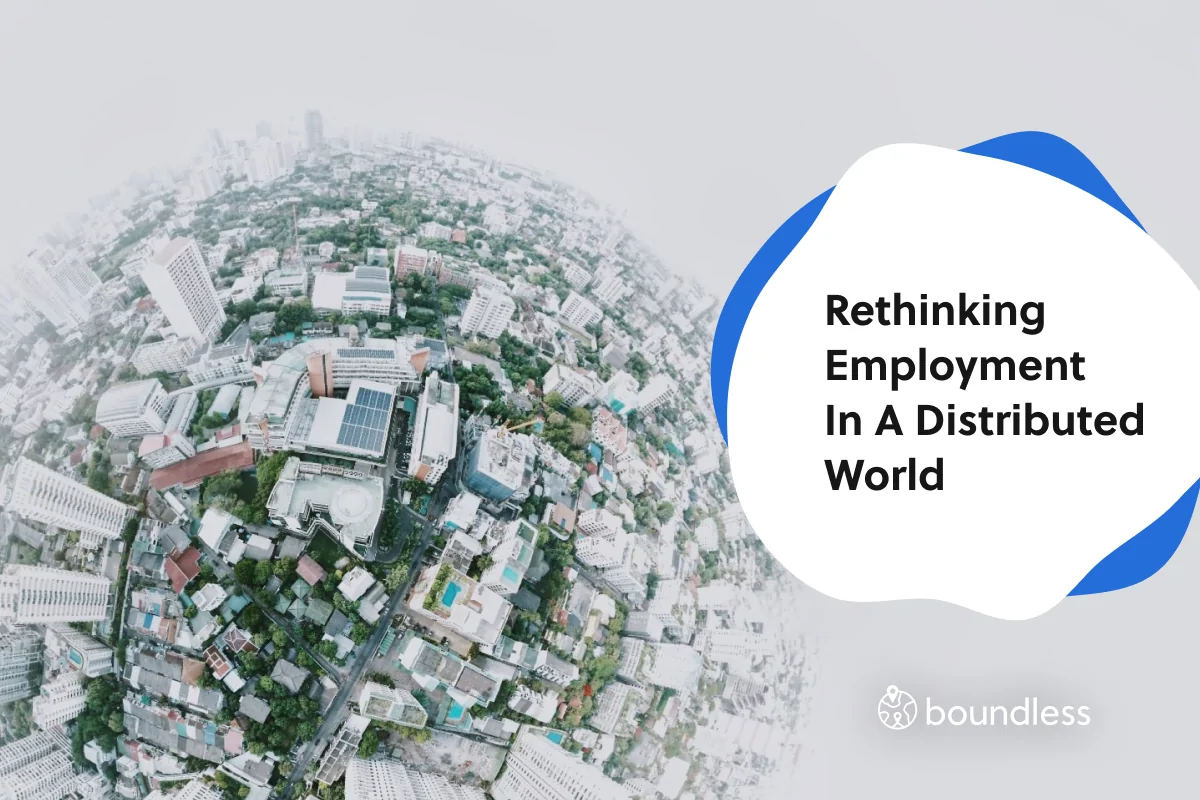What is Global Payroll?
Payroll is the process of paying employees their salaries. When a company employs workers in more than one country, running all relevant local payroll can become much trickier to manage as it involves deep expertise in each individual jurisdiction. Running global or multi-country payroll requires a significant amount of time and resources, and should be executed with a lot of consideration.
‘Global payroll’, then, encompasses all the customary practices of payroll – the process of calculating and distributing the wages or salaries based on employee working hours, pay rates, taxes, and deductions – and implementing them on a wider, more nuanced scale that also takes local tax compliance concerns of multiple jurisdictions into consideration.
What effect does cross-border talent recruitment and remote work have on payroll?
Recruiting internationally remote workers from outside your organisation’s primary location has a significant effect on payroll.
Regardless of where the company is based, each employee will need to be employed locally and have local payroll. For a company, that means it will either need to have subsidiaries everywhere there are employees and run some form of multicountry/local payroll or work with an Employer of Record. They would not be able to pay employees in other countries via the HQ payroll.
As a result, when companies recruit talent from different countries, the payroll function will need to be larger and staffed with people who have previous experience running multi-country payroll. Each country has different tax laws, statutory benefit schemes, and HR compliance requirements that all impact payroll.
Workers must be provided with local work contracts as well as locally compliant payslips. This means complying with the specific payroll regulations and tax authorities in each country of operation and getting help from a local payroll provider to run it.
Managing payroll for a global workforce requires understanding and adhering to these diverse rules. Organisations must establish competencies in global payroll to accommodate remote workers in various locations. This involves setting up the infrastructure and processes to handle payroll for employees in multiple countries, and ensuring full compliance with data collection and security that may be required in addition to regulations such as the General Data Protection Regulation (GDPR).
Companies must also file tax reports and communicate with tax authorities in each country where they employ workers, which requires a deep understanding of local tax systems and deadlines. And as governments often introduce amendments in tax and benefits regulations, payroll teams must stay updated on these changes and adjust payroll calculations accordingly to maintain compliance. As these kinds of changes can affect salaries, it’s wise to update employees on what to expect when they receive their next payslip.
While this is part of the typical process for any payroll team, attempting to keep tabs on governance and tax changes across borders for a global team is obviously more challenging.
What options does my company have for managing global payroll?
There are three main approaches to payroll management: in-house, fully outsourced, and hybrid.
Of these, the most difficult to manage and master is the in-house option. It requires extensive knowledge and expertise from your team. If you employ several people in multiple countries, your team’s technical capabilities and resources may quickly become strained.
However, if your organisation employs just a few workers outside your primary location, the in-house option may still be feasible for your accounting and payroll departments. A hybrid payroll solution may work well for you, too, and allow you to keep the simpler payroll activities in-house and outsource more complicated global payroll processes. Hybrid options tend to work best when a company has few international employees and the majority of their workforce maintains tax residency within the organisation’s primary country.
The final option – fully outsourced payroll – refers to a group of external partners who handle all of a given organisation’s payroll activities. This takes all the pressure off the in-house team so everyone can focus on other activities that relate more directly to running the business.
What do I need to consider when implementing a global payroll system at my company?
Choosing to employ workers from around the globe is an exciting change for any company. But it brings a number of new challenges – whether you choose to build your systems fully in-house or by partnering with an outside source such as an Employer of Record (EOR).
But payroll is only one of many considerations when deciding to employ people abroad. Many companies make the mistake of thinking that simply having a payroll solution is enough. However, that covers only one small part of the logistics of employing a global team.
If you’re hiring internationally remote workers, you still need an employment solution that provides contracts and helps fulfil other requirements outside of payroll. Because of this, companies should consider getting help from an EOR.
The most fundamental consideration is to ensure your employees are paid accurately and on time no matter where they are. Mistakes can have far-reaching consequences for both your workers and your organisation.
If you choose to use your in-house team for any part of your global payroll process, be careful not to overestimate their expertise in cross-border tax and employment regulations. Managing diverse payroll landscapes requires specialised knowledge and resources that may simply be out of your team’s level of expertise.
Find the global payroll solution your organisation needs with Boundless
Implementing a global payroll system demands meticulous attention to detail, extensive knowledge, and a holistic approach to compensation and security. Boundless can help your company navigate the complexities of global payroll and support your diverse and remote workforce.
Schedule a consultation with one of our experts to learn more.


